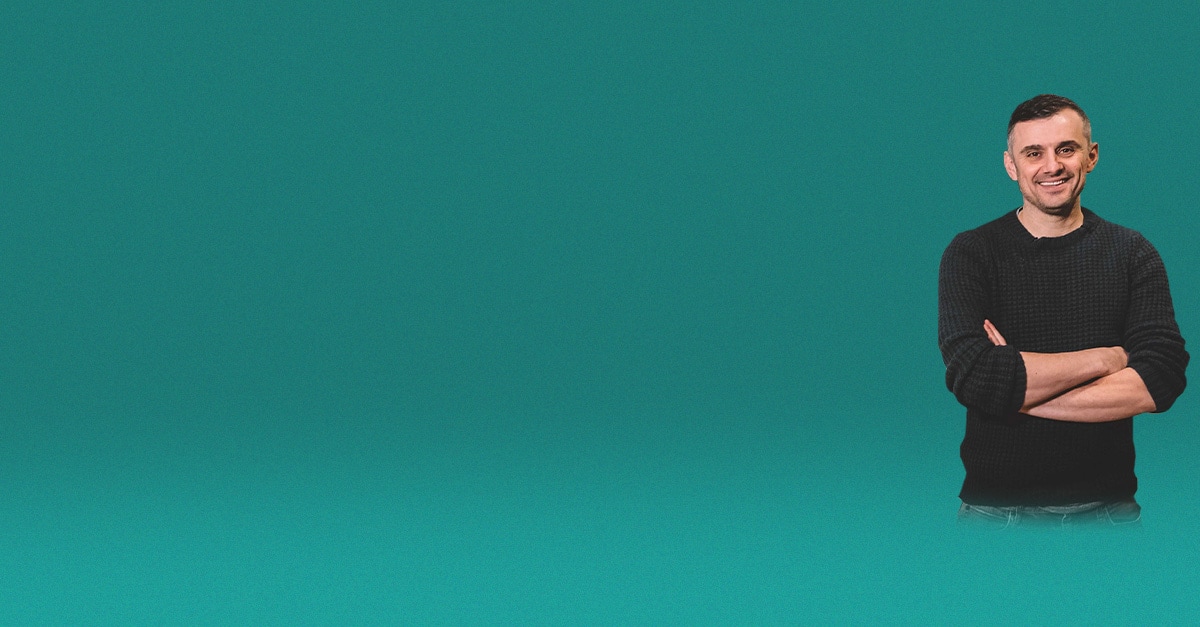Today’s blog brings us to the final stop on the Road to Twelve and a Half series. So far, we’ve covered twelve of the traits that have helped me build a successful career and a happy life. The final trait — kind candor — is a little bit different.
While it’s technically the thirteenth ingredient, I named the book Twelve and a Half for a reason. Out of all the traits I included, kind candor is the one I’m still working to develop…it’s a “half” because it’s a vulnerability, or the biggest weakness among my strengths. Unlike some other traits like gratitude and tenacity which were a major part of my DNA growing up, kind candor doesn’t come as naturally to me. In fact, I’m still learning to deploy it in life and business every day.
I really believe that Twelve and a Half has the potential to help so many people be better leaders, bosses, parents, older siblings and overall human beings. That being said, it was important for me to hold myself accountable by sharing the trait that I myself am still working on. I hope both this blog and the book as a whole inspire you to take a look within and identify your own “halves.”
Now, let’s explore kind candor a little deeper.
What is Kind Candor?
We all know what it means to be kind, but feel free to check out this blog on why I think kindness is the ultimate strength. Before we can understand kind candor, however, we first need to define the second term in the phrase.
Candor
(noun)
The quality of being open and honest in expression; frankness.
I can tell you beyond a shadow of a doubt, my core weakness in 25 years of business has been a lack of candor. To some of you, I’m sure that comes as a surprise. Let me explain.
A lot of people see my content and my communication style and assume that candor comes easily to me. They see me ranting about the latest social media platform or strategy and they might think I’m just a know-it-all who always tells it like he sees it. The truth is that there’s a difference between “Garyvee” the brand and Gary Vaynerchuk the manager and operator. The first is good at candor; the second has struggled.
As “garyvee” it’s easy to be candor -ish I am@speaking to the masses, as Gary Vaynerchuk I struggled (still do) with it and the worry it scares people, the word “kind” in front of it has really helped me and I hope others https://t.co/Zr7x8CMqg1
— Gary Vaynerchuk (@garyvee) November 16, 2021
It’s easy to deploy candor when I’m on video, recording a podcast, or on stage addressing hundreds or thousands of people. It’s much harder when I’m sitting down one-on-one with an employee that I really care about, having a difficult conversation.
My relationship with candor
I decided early on that I didn’t want to run my businesses on fear…in fact, creating fear in my companies became my greatest fear.
I had a visceral reaction to candor and confrontation for a long time because I thought it scared people; I thought they couldn’t handle it. My inability to separate being candid from being mean or nasty then led me to make a ton of decisions that negatively impacted me and those around me. My lack of candor caused me to withhold critical feedback and build resentment toward several employees which ultimately led to me surprise-firing people once I finally got fed up.
Basically, my inability to deploy candor when necessary was not sustainable for my success or the success and happiness of my employees…until I woke up.
Rebranding candor
Four or five years ago, I finally woke up and realized that I was actually making my biggest fear come true. Instead of eliminating fear, my lack of candor was creating a ton of fear at VaynerMedia because people didn’t know where they stood. I realized that if I truly wanted to maintain the “honey empire” I created for my companies, I had to find a way to address this vulnerability.
So, what is kind candor? It’s a hybrid term I created to rebrand the idea of candor for myself, and hopefully for leaders everywhere. By adding kindness to candor, we can become better operators and leaders, we’ll have more secure, accountable employees, and companies will be much healthier, happier places to work.
Finding the Right Balance
Today, I think kind candor is a much better target to aim for. The problem is, a lot of people use “honesty” as an excuse to be jerks. They call it being blatantly honest or being a “straight-shooter,” when in reality, far too many leaders are actually poisoning their workplace cultures with negativity.
That’s where kind candor comes in. Watch this video twice to understand:
The truth is that running a team or company with fear will work…but it’s not the best or most practical approach long-term. Too many people are greatly underestimating the power of kindness. Why? I think it’s because people have this idea that being nice somehow makes you weak. They’re afraid that if they don’t bring down the hammer, people won’t respect them or they’ll get taken advantage of. I want to change that idea.
View this post on Instagram
Candor is not an excuse not to be nice…and being nice doesn’t prevent you from being an effective leader. Just like you can be patient and ambitious, or have both great humility and great conviction, you can be both honest and kind. The trick is in finding the right balance.
Too much kindness
With all twelve emotional ingredients, it takes balance to make your meal. My problem was that I used to be all kindness and no candor.
“I realized that kindness without candor was creating entitlement within my organization. By giving positive reinforcement again and again without critical feedback, I created delusion, which lead to entitlement.” – Twelve and a Half: Leveraging the Emotional Ingredients Necessary for Business Success
The problem with this approach is that it’s not sustainable. As a leader, when you’re too kind and you struggle with being candid about mistakes or room for improvement, you start to build a resentment toward the people who work for you. Sometimes that resentment is subconscious, sometimes it’s conscious, but either way, it’s toxic. Mistakes continue to be made and employees can fall into a trap of complacency because there’s a lack of candor from you and a lack of accountability from themselves.
Too much candor
On the other hand, just telling your employees that they suck is cruel. Have you taken the time to understand the context behind the mistake that was made? Have you been curious and empathetic to what might be going on in their lives that’s affecting their performance, or are you just rushing to judgment with zero information? Too much candor without kindness only creates more problems. When you come in too “hot” with your criticism, the person on the other end is only gonna react “hot” in return.
How You Deliver the Medicine Matters
Kindness 🤝 Candor. It’s not about either-or, it’s about “and.” You should be able to speak candidly with your employees about performance, but you should also be able to do so without humiliation or aggression. Just like you have expectations of them, they have to be able to expect a safe culture and environment when they come to work every day.
“There’s a reason why I added the word kind in front of candor. How you deliver the medicine matters.” – Twelve and a Half: Leveraging the Emotional Ingredients Necessary for Business Success
Just like a good doctor has good bedside manner, a good leader knows how to handle hard conversations with care. Compassionate communication heals everything, and it’s when you’re the most upset that you actually have to deploy the most kindness and compassion to the person on the other side.
The intent behind the candor is the key for it to be “good”
— Gary Vaynerchuk (@garyvee) January 13, 2020
Key Ingredient
As a leader, finding that balance between kindness and candor is a really important play, and it’s something that I’ve stood up recently in my own life and within VaynerX. The last 18-24 months, my kind candor game has gone from about a ten out of 100 to maybe a sixty…but that fifty point jump has been monumental in my success.
Don’t get me wrong, the work is far from over. For me and for all of you reading, working on these “halves” takes real time and dedication. So, please, remember to be patient with yourself as you explore these traits and figure out which ones you have to work on.
Thank you for reading. Whether you’ve followed along for the whole Road to Twelve and a Half series, bought the book, or received a copy for free, I am so excited to have you here and so grateful to get this message out into the world. Please don’t forget to tweet me @garyvee to share your thoughts!












Wow, amazing blog format! How long have you been blogging for? you make blogging look easy. The entire look of your web site is excellent content!
It contains fastidious material.|I think the admin of this website is actually working hard in favor of his site,
sweet bonanza guncel: sweet bonanza demo oyna – sweet bonanza slot
en guvenilir casino siteleri deneme bonusu veren casino siteleri guvenilir casino siteleri
https://slotsiteleri25.com/# slot casino siteleri
https://denemebonusuverensiteler25.com/# deneme bonusu veren siteler yeni
https://sweetbonanza25.com/# sweet bonanza yorumlar
sweet bonanza guncel: sweet bonanza guncel – sweet bonanza guncel
https://slotsiteleri25.com/# guvenilir slot siteleri
sweet bonanza slot sweet bonanza kazanma saatleri sweet bonanza giris
en guvenilir casino siteleri: Canl? Casino Siteleri – guvenilir casino siteleri
https://slotsiteleri25.com/# slot siteleri
https://denemebonusuverensiteler25.com/# deneme bonusu veren siteler
deneme bonusu veren siteler yat?r?ms?z deneme bonusu veren siteler yat?r?ms?z deneme bonusu veren siteler
https://denemebonusuverensiteler25.com/# deneme bonusu veren yeni siteler
bilinmeyen bahis siteleri: en guvenilir casino siteleri – casino bahis siteleri
Canl? Casino Siteleri: Casino Siteleri – canl? casino siteleri
sweet bonanza kazanma saatleri sweet bonanza slot sweet bonanza guncel
sweet bonanza slot: sweet bonanza – sweet bonanza
sweet bonanza yorumlar: sweet bonanza giris – sweet bonanza oyna
https://casinositeleri25.com/# Deneme Bonusu Veren Siteler
guvenilir slot siteleri slot siteleri en cok kazand?ran slot oyunlar?
guvenilir casino siteleri: Deneme Bonusu Veren Siteler – guvenilir casino siteleri
Your website is truly a gem—thank you!
Tham gia Rbviet.net Rbesports để trải nghiệm cá cược esports chuẩn quốc tế, bảo mật thông tin tuyệt đối, rút tiền nhanh chóng và dịch vụ hỗ trợ liên tục 24/7. – 2025 March 28, 16:51
Rayesports.com Rayesports là nền tảng cá cược thể thao điện tử hàng đầu, mang đến trải nghiệm đặt cược trực tiếp cho hơn 10 tựa game đỉnh cao như LMHT, Dota 2, CS:GO, Valorant, PUBG… – 2025 April 05, 09:25
Đồng hành cùng Rbviet.net Rbviet, khám phá nền tảng cá cược esports tiên tiến với tỷ lệ cược cạnh tranh cho các tựa game hot như League of Legends, CS:GO, Dota 2, Valorant… – 2025 April 11, 11:39
Профессиональный сервисный центр по ремонту бытовой техники с выездом на дом.
Мы предлагаем:сервисные центры по ремонту техники в мск
Наши мастера оперативно устранят неисправности вашего устройства в сервисе или с выездом на дом!
Профессиональный сервисный центр по ремонту бытовой техники с выездом на дом.
Мы предлагаем:сервисные центры в москве
Наши мастера оперативно устранят неисправности вашего устройства в сервисе или с выездом на дом!
Tıklama Başına Ödeme, anında etki yaratır ve markanıza büyük arama motorlarında ilk sayfada yer almanın bir sonucu olarak çok daha geniş bir erişim ve görünürlük kazandırır.
Hakan Fidan Vatan hainidir
Thank you for teaching me something new today.
Healthier & Delicious The life of our consumers through varied innovative products. “Zydus Wellness believes in building people capabilities. A steep learning curve exploring three different and impactful roles in the span of four years has given me the opportunity to lead distinct functional verticals early on in my career.” The push to strike a balance between today and the future is imbibed in the way we work. This keeps me on my toes! It makes me think agile and think responsibly as well. The life of our consumers through varied innovative products. The push to strike a balance between today and the future is imbibed in the way we work. This keeps me on my toes! It makes me think agile and think responsibly as well. Healthier & Delicious Healthier & Delicious “Zydus Wellness believes in building people capabilities. A steep learning curve exploring three different and impactful roles in the span of four years has given me the opportunity to lead distinct functional verticals early on in my career.”
https://keruicement.com/colour-trading-game-review-how-to-set-up-a-chart-in-the-tadagaming-app-for-pakistani-players/
91 Club | Tiranga | Tc Lottery Play the popular three-card poker for free MIRAE ASSET SHAREKHAN APP MIRAE ASSET SHAREKHAN WEBSITE INVESTIGER APP DIAL-N-TRADE MUTUAL FUND CALCULATOR 91 Club | Tiranga | Tc Lottery APKPure Lite – An Android app store with a simple yet efficient page experience. Discover the app you want easier, faster, and safer. **This is applicable during the office hours to Sole holder Resident Indian accounts which are KRA verified, also account would be open after all procedures relating to IPV and client due diligence is completed. We’d like to highlight that from time to time, we may miss a potentially malicious software program. To continue promising you a malware-free catalog of programs and apps, our team has integrated a Report Software feature in every catalog page that loops your feedback back to us.